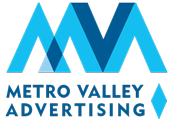Paid search is not used by every personal injury attorney. It should be. Paid search drives more traffic to landing pages and websites. More traffic means more potential clients. These ads appear at the top of search results. They can drive immediate traffic to your site and quickly increase conversions. Driving traffic with paid search consistently delivers results.
Understanding Paid Search Campaigns
Paid search campaigns involve buying ad space on search engines such as Google. When someone searches for related terms, your ad appears. You only pay when someone clicks on the ad. Hence the term, Pay Per Click (PPC). This is different from organic search, which relies on SEO to rank naturally. Keywords are crucial in paid search. They match your ads with relevant searches. Choosing the right keywords ensures your ads reach the right audience.
Paid search is unique in many ways. First, it shows intent. When someone types a question or thoughts into a search bar they do so for a reason. They want to find something. Intuitively, we all know we will see ads. How often do people go to a media platform and look for ads? They do with paid search!
PPC delivers immediate visibility. Your ad pops up as soon as the query is completed. And, PPC offers unparalleled control and flexibility. You can start, stop or adjust your ads at any time. You set the budget and bidding strategy. Because it is digital, paid search provides measurable results.
Setting Up a Paid Search Campaign
First, you need a Google Ads account. Setting this up is straightforward. Go to the Google Ads website and follow the prompts. Next, choose your keywords. Think about what potential clients might search for. Tools like Google Keyword Planner can help. Try and use as many “long tail” keywords as possible. A long tail keyword is a phrase that is generally made from three to five words. Since these keywords are more specific than generic terms, they allow you to target niche audiences. These keywords are also less competitive so they are less expensive. Use outside resources such as SEMrush and SpyFu to research keywords. Start with their free versions.
Then, create compelling ad copy. Your ads should be clear and direct. Utilize keywords in your headlines and descriptions. Highlight your firm’s strengths and services. Think about what makes your firm unique. Most importantly, don’t neglect emotion. As you know, for clients this is an emotional experience. Demonstrate your empathy.
Finally, set a budget and bid strategy. Decide your overall monthly budget and how much you’re willing to spend per click. Advertising agency tip, start with manual bidding. We recommend beginning with maximize clicks bidding and getting more precise with time. This will allow the algorithm to gather data and improve results. Of course, monitor your spending to avoid overspending.
Targeting the Right Audience
Audience targeting is essential. You want your ads to reach potential clients. Use geographic targeting to focus on your service area. Examine your database to learn where your customers come from. You can target based on towns, cities, radius or zip codes.
Demographic targeting can narrow it down further. Consider age, gender, and other factors. Income and employment status are popular for many personal injury firms. Additionally, utilize audience interests and behaviors. This ensures your ads reach those most likely to respond to your ads.
Measuring Success
Tracking the success of your paid search campaigns is essential. First, monitor key metrics like click-through rate (CTR), cost per click (CPC), and conversion rate. Look at all of your metrics to determine which ones affect both your conversion number, your intakes and new clients. Those are your KPI’s of Key Performing Indicators. KPI’s are the metrics that lead to the objective of your advertising: new clients. While the other metrics may be important you have goals and need to achieve them.
Using tools like Google Analytics is crucial. This tool shows what users do on your site after clicking your ads. It helps you understand which keywords and ads drive the best traffic. Setting up conversion tracking lets you measure specific actions, like form submissions or calls. Regularly reviewing this data helps you adjust your campaigns. Focus on what works and tweak what doesn’t. This way, you can continuously improve your results and ensure your advertising dollars are well spent.
Call Tracking is another “must” for Personal Injury paid search advertising. People who are injured, or their loved ones, often like to speak with someone about their case. Phone calls are a very common form of inquiry. While Google Ads tracks phone calls, a good phone tracking software provides much more data.
Optimizing Your Campaign
Optimization keeps your campaign effective. Start with A/B testing. Test different ad copies and landing pages. See which ones perform better. Use negative keywords to avoid irrelevant traffic. This ensures you’re not paying for clicks from unrelated searches. Continuously monitor your campaign. Make adjustments as needed to improve performance.
Driving Traffic with Paid Search
Driving traffic with paid search campaigns is a powerful strategy for personal injury attorneys. Paid search ads give your firm immediate visibility at the top of search results, attracting potential clients actively seeking legal help. By understanding and effectively utilizing keywords, setting up a Google Ads account, and targeting the right audience, you can create compelling ads that reach the right people.
Like most other media, paid search performs best when combined with other media. A prospect who sees a TV ad or a highway billboard and then performs a search is much more likely to choose your ad. With these strategies, you can start driving traffic with paid search, generate quality leads, and grow your practice. Start leveraging paid search campaigns today to see immediate results and achieve your marketing goals.



